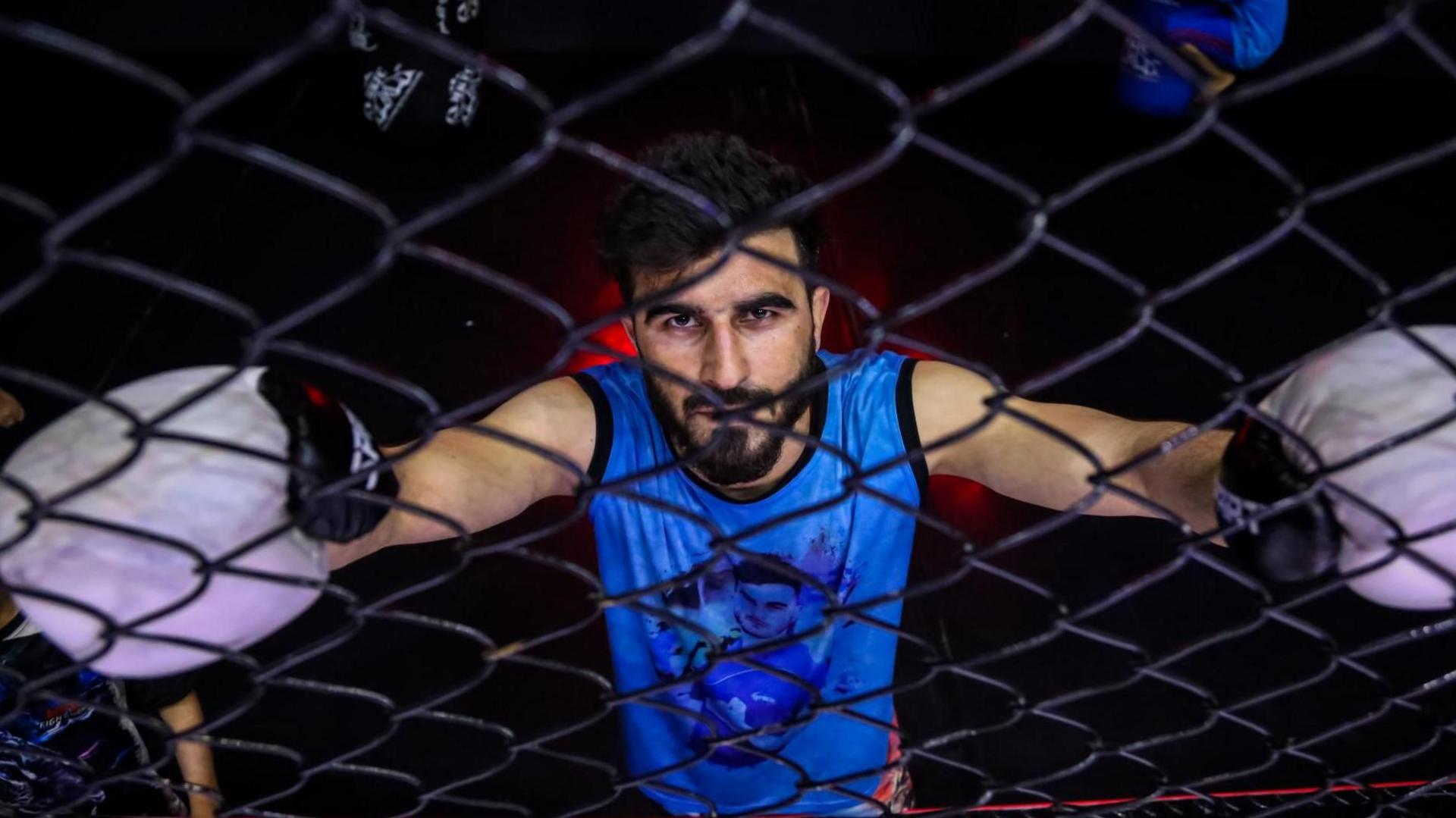MMA in Afghanistan? Too violent for the Taliban

Mixed martial arts had been growing in popularity before the Taliban government took over in 2021
- Published
Afghanistan's Taliban government has banned mixed martial arts (MMA), saying it is incompatibile with Islamic law.
An official from the Taliban's sports authority, speaking to local broadcaster TOLOnews on Tuesday, said that MMA was too violent and posed a risk of death.
The order was passed down by Afghanistan's morality police in the Taliban's Ministry for the Propagation of Virtue and the Prevention of Vice.
It comes after an investigation into the sport's compliance with Islamic law, or Sharia.
"It was found that the sport is problematic with respect to Sharia and it has many aspects which are contradictory to the teachings of Islam," the Taliban's General Directorate on Physical Education and Sport said in a statement sent to the AFP news agency.
"That鈥檚 why this decision has been made."
MMA is a popular sport among young people in Afghanistan, and garnered a passionate local fan base in the two decades leading up to the Taliban's return to power in 2021.
The Mixed Martial Arts Federation was founded in 2008, while the Afghanistan Fighting Championship (AFC) and Truly Grand Fighting Championship (TGFC) held dozens of fights.
Although it does not seem to have been specifically named in official decrees, MMA has been under severe pressure ever since the Taliban took over.
Competitions were effectively outlawed in 2021 when the Taliban introduced legislation prohibiting "face-punching".
Some fighters also complained of threats and harassment from Taliban officials, according to interviews published in MMA publications.
Yet the authorities did appear to soften their stance on some occasions.
In 2022, leading fighter Ahmad Wali Hotak was able to hold a press conference in the capital Kabul to announce an upcoming fight, which he won in Russia.
On his return to Afghanistan, he was met by government figures who posed for photographs.
Most competitors, however, had long left the country before this latest announcement.
MMA has not yet been recognised by the International Olympic Committee, primarily due to safety concerns.
Four of the 11 Afghan who competed in sports at the Paris Games, on either the national or the Refugee Olympic teams, were originally martial arts athletes.